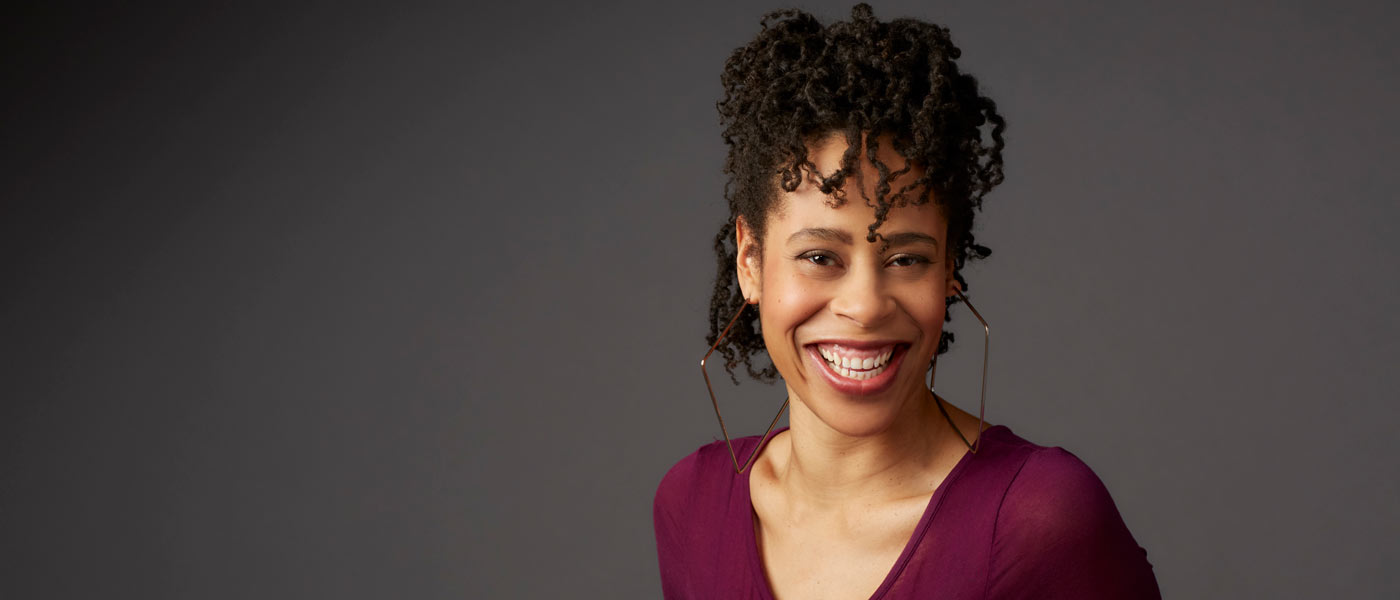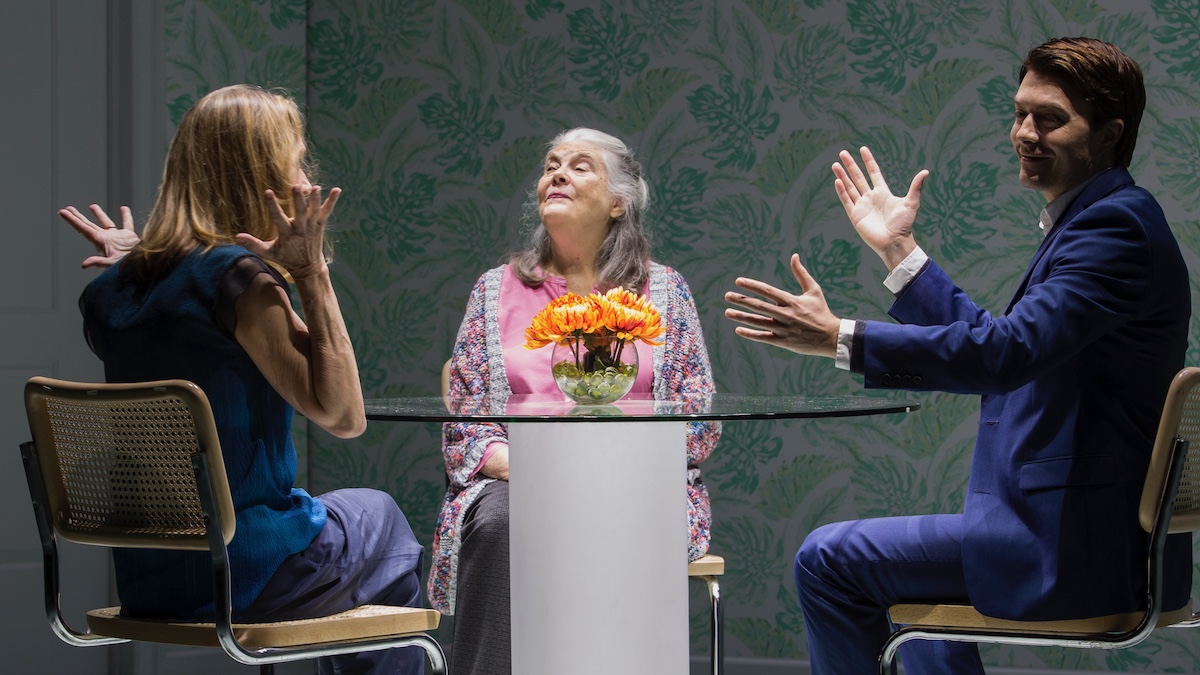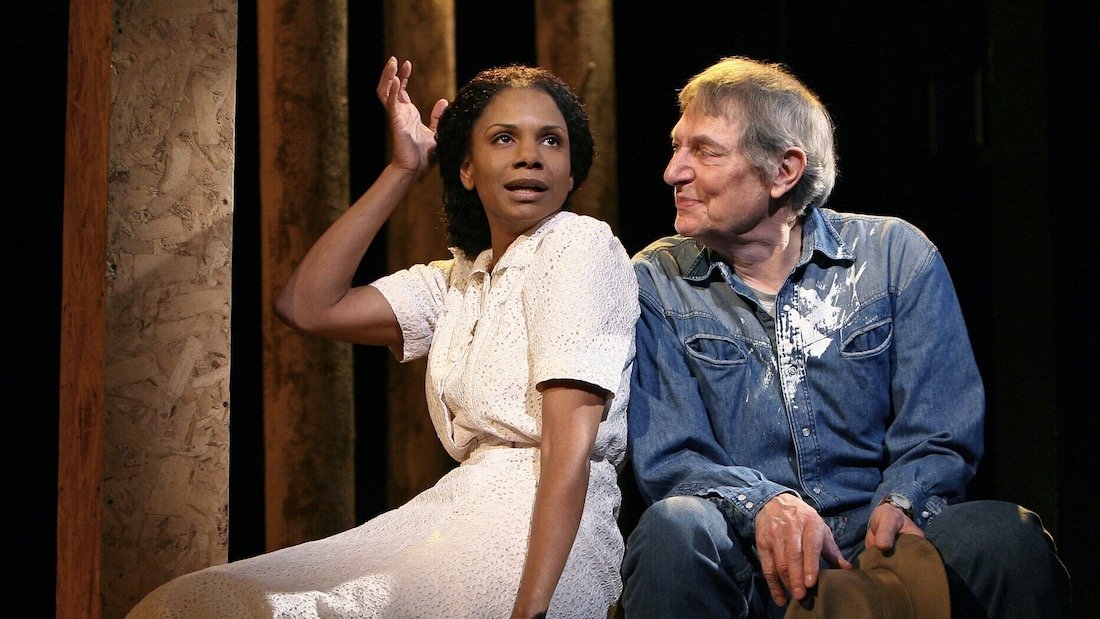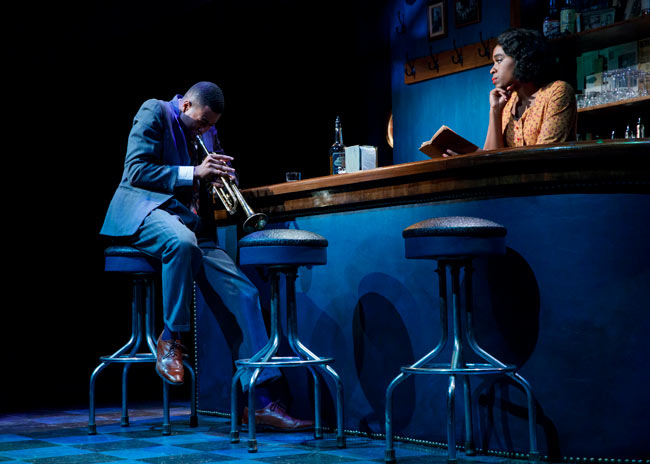
Paradise Blue, the story of a gifted trumpeter who contemplates selling his once-vibrant jazz club in Detroit’s Black Bottom neighborhood, rounds out Dominique Morisseau’s Detroit Trilogy. Currently running in New York at Signature Theatre, Paradise Blue explores the challenges of building a better future on the foundation of what our predecessors have left us. Below, Signature Theatre’s Artistic Assistant and Education Coordinator Maia Safani chats with Dominique about her passion for theatre, influence of music in her life, advice for other theatre makers, and more.
How did you get your start in theatre? What drew you towards playwriting?
I started acting in plays in 2nd grade. The bug bit me very early. And I’ve been writing since 2nd grade also, very much into mysteries and short novellas (yep, I tried to write a few myself. Mine were called, “The Cabbage Patch Kid Mysteries.” They were a type of doll that I grew up with. I was obsessed with them). But playwriting didn’t happen until I was in college as a theatre acting student, and I started getting frustrated with the lack of roles for African-American women in our department productions. I wrote my first play for myself and the two other African-American girls in my department as a way to make space for our stories. And then, with the success of that show, the playwriting bug had bitten me forever.
Paradise Blue is part of your Detroit Trilogy, alongside Detroit ’67 and Skeleton Crew. What inspired you to write a trilogy of pieces?
I wanted to write a three-play cycle mostly because of August Wilson’s ten play cycle of Pittsburgh. I thought, after reading his cycle, that the people of Pittsburgh must feel so valued after reading this man’s work, and I wanted the people of Detroit to have an author doing the same thing for them. We deserve love and full exploration of our humanity and the media wasn’t doing that, so I decided that it had to come from those of us writers who are from the city and know its humanity well. I love my city, so this trilogy is also my way of spreading that love.
J. Alphonse Nicholson and Kristolyn Lloyd in PARADISE BLUE at Signature Theatre. Credit: Joan Marcus.
Where did you get the initial idea for this play? Did you start with the time, the place, the people?
I started with the time. I knew I wanted to tell a story about Paradise Valley in the 40s, so that’s where I began my research. And the demands of the world at the time (jazz, liquor, urban renewal) all naturally made their way into the story because that’s what was happening. And I knew I wanted to tell a story about how we lost Paradise Valley, because I’d heard so much about it growing up and wanted to experience it for myself. Theatre allows you to resurrect people, places, and communities.
In the play, Pumpkin is reading the poetry of Georgia Douglas Johnson. Can you talk us through your decision to use Johnson’s work in this play?
I wanted to use a Black woman poet. I knew that. And I was looking for under-known writers during the Harlem Renaissance. We might have all heard of Langston Hughes, Zora Neale Hurston, Countee Cullen etc. But there had to be more Black women poets that I was unfamiliar with. And so I went searching and found and fell in love with Georgia Douglas Johnson.
Writing a play is very different from rehearsing a play. How does your process change once you’re in the rehearsal room? How do your conversations with the director, actors, and designers help inform your rewrites throughout the process?
I use my creative team (actors, director, designers) to help me fill in the gaps or find where things aren’t working. They’re very smart artists and usually if something isn’t working naturally for their character, that’s a clue to me that something in the writing is missing. They are a huge part of my re-writing process.
You also identify as an actor, activist, and poet. How do these other facets of your identity help inform your work as a playwright?
They’re all interconnected. My work as a playwright is informed by my poetry and my acting. My characters speak poetically and also naturally. It’s a blend. And my characters are strong and developed well because the actor in me knows how to make every character have a purpose, objective and point of view. And the activist in me is where all of my stories live. Everyone in every play is searching for some sense of justice.
Keith Randolph Smith and Kristolyn Lloyd in PARADISE BLUE at Signature Theatre. Credit: Joan Marcus.
Jazz, blues, and bebop play a significant role in Paradise Blue. What’s been the influence of music in your life?
Music is my everything. I’m married to a Hip-Hop artist and musician. I used to be a dancer, so music was instrumental to my art. I used to play piano. I used to choreograph. As a poet, I’ve recorded my poems with live musicians and other music artists. Music is everything and everything is music to me. It has become a huge inspiration to all of my writing.
Do you have any advice for aspiring theatre makers?
My advice is to think about what stories you are interested in telling in this world. What kind of stories excite you that you’d like to usher forward? Because we are ALL storytellers, whether designing the set or the lights, directing, acting, writing, stage managing…. we have signed up to tell stories together. And so before you can accomplish any great theatrical feat, get very connected to who you are as an artist and what you find purpose in, and follow THAT. Find a way to not just be served, but to also be in SERVICE to others. Those are the makings for the greatest kind of artists… those who are here for reasons beyond their own self-preservation. Join the movement of bringing unheard stories to the mainstage, and be brave in your art. If it scares you, that’s a good sign to say yes!

Inspired by True Events: A Conversation with Playwright Ryan Spahn

Plays About Technology



